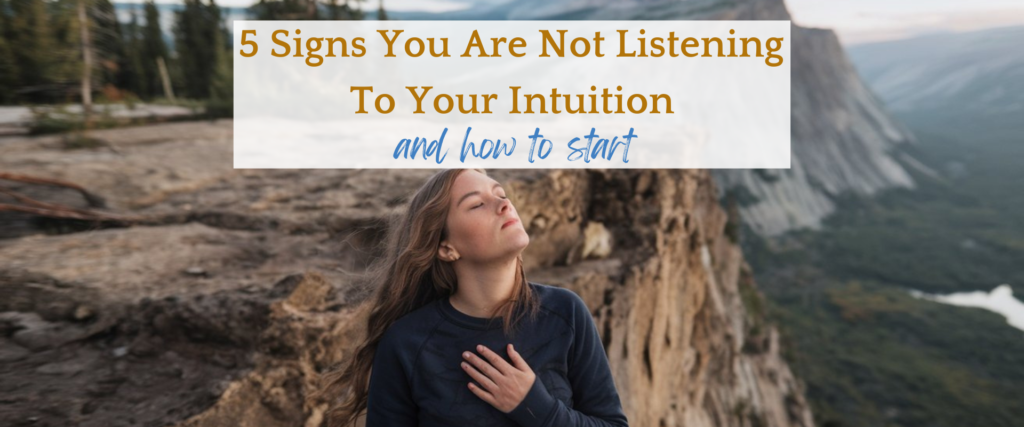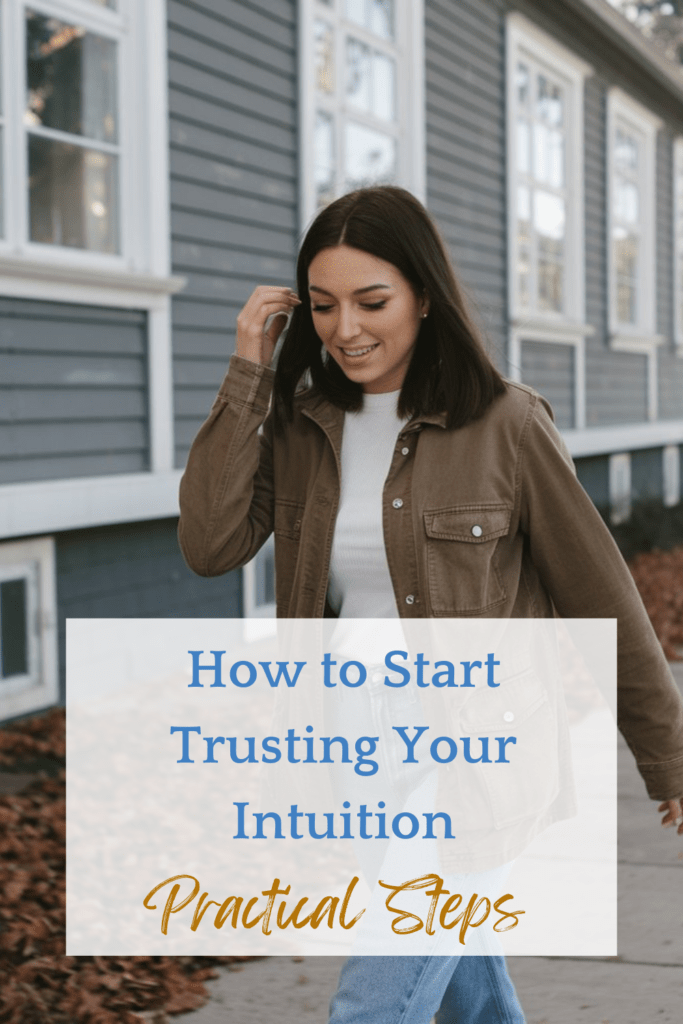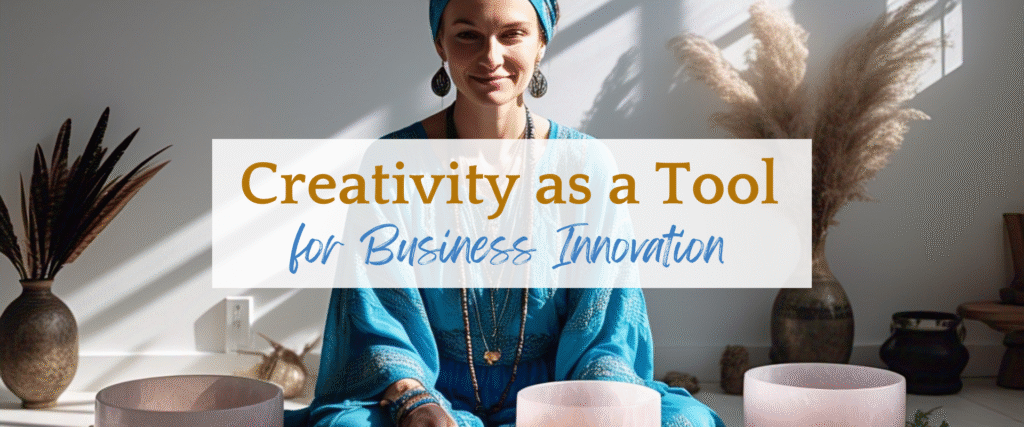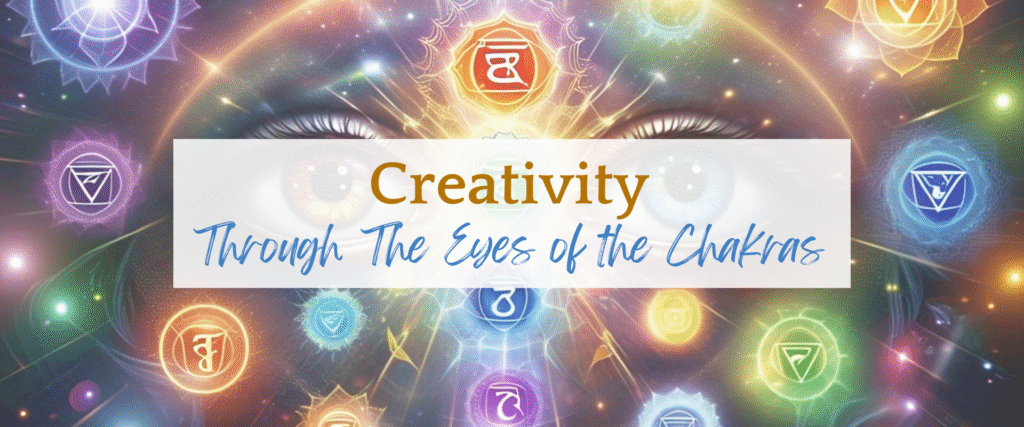
For many, learning to trust those inner nudges can feel like one of the hardest things to do. You might wonder, “Is this real, or am I just making things up?”
I’ve had my fair share of moments where I questioned my intuition, even after years of working with it. While I trust it most of the time, I’ll admit there are times I don’t get it right. But that’s okay because intuition is a skill you develop by practising, reflecting, and, most importantly, being kind to yourself when things don’t go as planned.
If you’ve struggled with trusting your intuition, you’re not alone. Here are five ways that not trusting your intuition might show up in your life, along with tips to help you start tuning in.
1: Putting Others on a Pedestal
One of the ways I stopped trusting my intuition was by putting coaches and other mentors on a pedestal. I assumed they knew everything about my business and that their advice would be perfect.
The truth? No one knows your business—or your life—the way you do. Yes, coaches and mentors can offer valuable advice, but it’s essential to tune into your own inner guidance. When I learned to pause, reflect, and ask myself, “What feels right for me?” everything changed. My business began to grow in a way that was sustainable and aligned with my personal journey.

2. Taking Courses Without Taking Action
Have you ever signed up for a workshop or retreat, learned incredible things, and then… done nothing with it? You’re not alone. It’s easy to gather tools and knowledge without taking the necessary steps to integrate them into your life.
Trusting your intuition requires action. When you learn a new technique or gain insights, practise them. Whether it’s journaling, meditating, or tuning into your body, taking consistent steps to apply what you’ve learned will strengthen your connection to your intuition.
3. Ignoring the Signs Around You
Intuition doesn’t always come in a dramatic flash. It can whisper through everyday moments—a book you feel drawn to, a conversation with a friend, or even a TV show. For me, intuition shows up in all kinds of ways, including nature, meditation, and tarot cards.
The key is to recognise these signs and take them seriously. For instance, if a thought keeps popping up, don’t dismiss it. Instead, sit with it and see where it leads. The more you pay attention to these moments, the clearer your intuition will become.

4. Overthinking or Second-Guessing
When intuition speaks, it often feels like a quiet knowing. But instead of trusting that initial feeling, many of us overthink and question it. This constant doubting can create a cycle where you stop believing in your own instincts altogether.
To break this pattern, start small. Trust your intuition on low-stakes decisions—like which route to take or what to eat for lunch—and gradually build your confidence. Over time, you’ll notice that your gut feelings are more reliable than you might have thought.
5. Dismissing Beliefs That Arise
Another sign of mistrusting your intuition is ignoring the beliefs or insights that come through. For example, you might write a letter to your intuition and receive a belief like, “It’s unsafe to trust my intuition because it’s led me wrong before.” Instead of acknowledging it, you might dismiss it as invalid.
Here’s the thing: if a belief has come through, it’s worth exploring. It’s often pointing to a deeper wound or fear that needs healing. By honouring these beliefs and giving yourself permission to process them, you can start building a stronger relationship with your intuition.
Building Trust Takes Time
Many of us have been conditioned not to trust our intuition. Whether it’s societal messages or past experiences, learning to reconnect with this inner voice is a process. And like any relationship, it takes time and patience to build trust.
Start by being compassionate with yourself. You’re not going to get it right every time—and that’s okay. Celebrate the moments when you do trust your intuition and learn from the times when you don’t. With practice, you’ll find that your intuition becomes a powerful ally in your life.

How to Start Trusting Your Intuition: Practical Steps
Building trust in your intuition takes time, patience, and practice. Here are some actionable steps to help you strengthen that inner connection:
- Start Small: Begin with low-pressure decisions, like what to eat for lunch or which book to read next. Pay attention to what feels right in the moment.
- Create Stillness: Set aside time for quiet reflection. Meditate, practise deep breathing, or take a mindful walk in nature. Silence helps you hear your inner voice more clearly.
- Keep an Intuition Journal: Record the gut feelings or hunches you experience throughout the day. Note when they turn out to be accurate, which will help you build trust over time.
- Check in with Your Body: Your body often gives intuitive signals—like a flutter in your stomach or a sense of calm. Notice how different situations make you feel physically.
- Ask Questions: When faced with a decision, try asking yourself, “What feels aligned with my values and goals?” Allow your intuition to guide your response.
- Practise Visualisation: Imagine making a particular choice. Does it feel expansive and exciting, or heavy and restrictive? Your emotional reaction can be a clue.
- Avoid Overthinking: Resist the urge to analyse everything logically. Sometimes, intuition doesn’t make sense until later—and that’s okay.
By incorporating these small practices into your daily routine, you’ll gradually deepen your trust in your intuition. Over time, it will become a natural and reliable part of your decision-making process.
Trusting your intuition is a journey, and I’m thrilled to share these insights with you. Which of these five signs resonates most with you? I would love to hear your thoughts. Head on over to my FB Group and let me know by using the hashtag #blog
![]()


